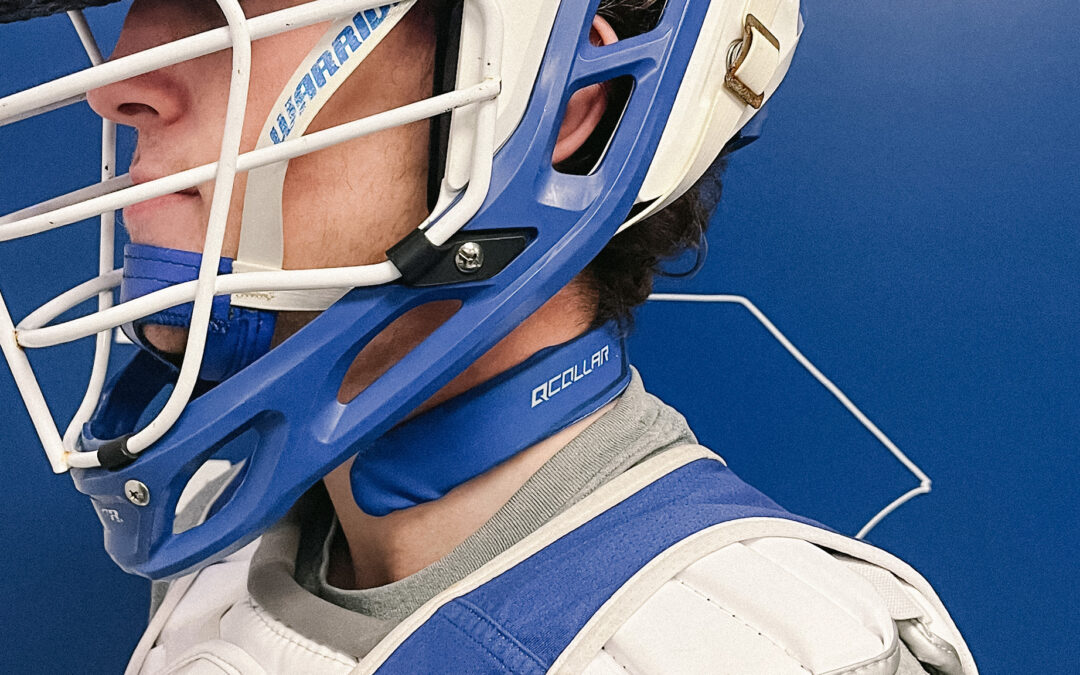It is well known that concussions are common. They can, however, be a challenge to treat, both for the patient/athlete and care provider. Given such, there have been attempts to prevent concussion through education awareness, rule changes in sport, and equipment (i.e. helmet) modification.
With that in mind have you heard of the Q-collar? There are claims that is has the ability to reduce the risk and severity of a concussion?
A few years ago I started seeing football players in the CFL and NFL wearing something around their neck. It looked like a skinny set of ear muffs. When I looked into it I found out that the device was supposed to prevent concussions, or at least the severity of one.
I thought that if it was legit it would catch on and if not, it would be shelved. While I do see less football players using them there still seems to be a strong following in some sports, with lacrosse being one of them.
What is the Q-collar?
The Q-collar is a device designed for athletes and military personal to wear around their neck. According to the manufacturer, Q30 the collar apparently applies pressure to the jugular veins. The venous pressure slows the venous flow leaving the brain. This then causes some of the blood to pool in the spaces surrounding the brain. Yes, there normally is some empty space up there. This in turn prevents the brain from shifting or sloshing around in the skull when there is a sudden impact or whiplash type of motion to the head. An analogy would be like airbags filling space in the car and limiting us being injured in a car accident
It is this shifting or sloshing of the brain that is thought to be the cause of a concussion.
Q-collar details
- Available online in 4 sizes depending on your neck size for $299CDN.
- Available moisture wicking sleeve with 12 colour options for $14.99CDN.
- No longer sold by Bauer as NeuroShield.
Does the Q-collar work?
According the the Q30 website there are eighteen studies to show the benefits from using the Q-collar. Given such it has become the “only FDA cleared device to reduce traumatic brain injury.”
When you look at the research summaries on their website some of the research is quite novel. Some is, however, questionable given:
- small sample sizes,
- it was done with animals and not humans,
- some of the research showed a difference in white matter changes duirng and after the sport season compared to the control group who did not use the collar. There was, however, no clinical relevance provided as to how these changes had a positive or negative impact.
- they use wording like “could reduce” and “may have provided a protective effect”.
One also has to assume that the correct size was ordered online and it remains in the correct position during activity.
Bottom line
The prevention and minimizing the effects of a concussion is something that we should all take a vested interest in. The group at Q30 have provided a novel option that seems safe, but its ability to reduce the risk and severity of a concussion seems questionable.
We have come a long way with the prevention and management of concussions, but we still have a way to go.
I do not know if you are like me, but I am looking forward to what we will learn about concussions in the next 10+ years. Will the Q-collar be the next best thing, technology used to build something better, or an idea that was eventually shelved next to the Power Brand Bracelets, vibrating platforms, and the Thigh Master.
If you have any questions about concussions, check out our Concussion Info page, or contact us at 306-343-7776.


